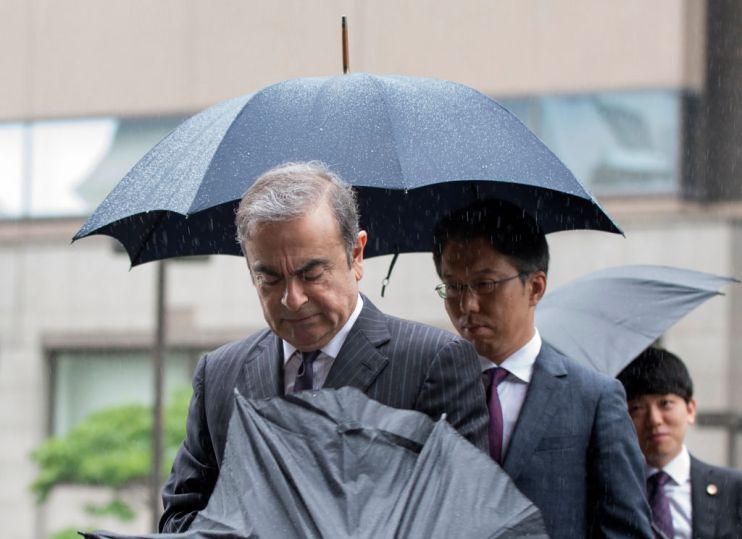Carlos Ghosn met Lebanon’s President after fleeing Japan

Former Nissan chairman Carlos Ghosn met Lebanon’s president after he fled from the Japanese justice system to the middle eastern country, according to sources close to the ex-car executive.
Ghosn was apparently warmly welcomed by President Michel Aoun on Monday after being smuggled out of house arrest by a private security company, Reuters reported one of the sources as saying.
Read more: Ex-Nissan boss Carlos Ghosn flees Japanese justice system for Lebanon
The revelation that Ghosn was welcomed by Lebanon’s political leaders came just days after Ghosn has fled what he described as “injustice and political persecution” in Japan.
The dramatic move came just months before the ousted Nissan boss was due to stand trial over alleged financial misconduct.
“I am now in Lebanon and will no longer be held hostage by a rigged Japanese justice system where guilt is presumed, discrimination is rampant, and basic human rights are denied,” Ghosn said in a brief statement yesterday.
Lebanon has no extradition agreement with Japan, making it likely that Ghosn will safely remain in the country.
One of the sources told Reuters that Ghosn was in a buoyant mood since arriving in Lebanon, the country where his father was born.
Under the terms of his bail, Ghosn had been confined to his house in Tokyo and was closely surveilled. He was not allowed to communicate with his wife Carole and was allowed only limited access to the internet and other communications.
Ghosn was arrested at a Tokyo airport in November 2018. He faces four charges – all of which he denies – including hiding income.
Read more: Nissan faces £17m fine for Carlos Ghosn scandal, says Japanese watchdog
Nissan sacked him as chairman saying that internal investigations had revealed misconduct including understating his salary while he was its chief executive and transferring $5m (£3.8m) of the carmaker’s funds into an account in which he had interest.
The case has brought the Japanese justice system, which allows suspects to be detained for long periods and prohibits defense lawyers from being present during interrogations, under scrutiny.